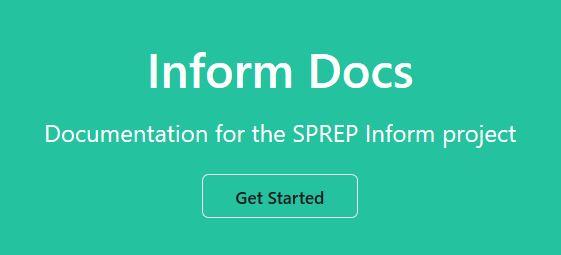This is a subset of the Population projections dataset available on PDH.stat: https://stats.pacificdata.org/vis?locale=en&facet=6nQpoAP&constraints[0…
This is a subset of the Population projections dataset available on PDH.stat: https://stats.pacificdata.org/vis?locale=en&facet=6nQpoAP&constraints[0…
This is a subset of the Population projections dataset available on PDH.stat: https://stats.pacificdata.org/vis?locale=en&facet=6nQpoAP&constraints[0…
The official Local Early Action plan created by the Mejit Local Resource Committee and community members. This was done as a part of the community's implementation of the Reimaanlok process. The Local Early Action Plan identifies communities values resources, threats to those resources, and potential solutions and actions the community could implement to address those threats.
The Helping Islands Adapt workshop was held in Auckland, New Zealand between the 11th and 16th of April 2010 to support regional action against invasive species on islands, in order to preserve biodiversity and adapt to climate change. It arose from decisions under the Convention on Biological Diversity (CBD) relating to invasive alien species and island biodiversity.
This paper focuses on the environmental challenges of sustainable development issues with particular attention to natural resource management, environment and climate change in the food and agriculture sector (including crops, livestock, fisheries and forestry).
This study, commissioned by the UNEP/CMS Secretariat, aims to identify how climate change is likely to affect individual migratory species, and the degree of threat that they face.
There are three species of rat in the Pacific, the Polynesian rat Rattus exulans (the smallest), the ship rat Rattus rattus and the Norwegian rat Rattus norvegicus (the largest). Rats are one of the most damaging pests in urban zones, and this document is a guide on how and why it is necessary to control in the region.
COMMERCIALLY IMPORTANT SEA CUCUMBERS OF THE WORLD
This review was undertaken to examine the invasive species management components within the National Biodiversity Strategy and Action Plans of twelve Pacific island countries (PICs): Cook Islands, Fiji, Federated States of Micronesia, Kiribati, Marshall Islands, Niue, Palau, Papua New Guinea, Samoa, Solomon Islands, Tonga and Vanuatu.
Consists of information on gender issues mainly violence against women and girls using evidence, data and knowledge gathered from in Pacific Island Countries.
Strengthening partnerships for the environment to help Pacific island countries better manage their natural resources is the goal of a close collaboration between two SPREP projects - the regional Inform data management project and BIOPAMA. The goal of the partnership is to help Pacific island countries better report on, and understand the status of protected areas, conservation and the environment in their respective jurisdictions.
The partnership is helping reduce redundancy and increase benefits to Pacific island countries from the two complementary SPREP environment projects.
The Secretariat of the Pacific Regional Environment Programme (SPREP) and the Pacific Community (SPC) are demonstrating leadership and the true spirit of collaboration by entering into a partnership that will benefit Pacific island countries through two online data tools, the Pacific Environment Portal (PEP) and the Pacific Data Hub (PDH).
The agreement was officially signed by SPREP Director General, Mr Kosi Latu, and SPC Director General, Dr Colin Tukuitonga, in Noumea recently.
The Environment and Conservation Division (ECD) of the Ministry of Environment, Climate Change, Disaster Management and Meteorology is developing the 2019 State of Environment (SoE) Report. Once endorsed, this report will be available on the Solomon Islands Environment Data Portal (https://solomonislands-data.sprep.org/
The regional Inform project is holding a meeting this week to review progress towards building national and regional capacity to improve environmental decision-making through strengthening planning and reporting in the Pacific.
The Inform project is mid-way through implementation and is taking stock of results achieved and hearing back from the countries of the progress in the new tools and processes being developed by the project to address the on-going challenge of compiling high quality data on the environment and making best use of it.
PNG has a total of about 46.9 million hectare of which 77.8% is forested with 13 natural forest types and forest plantations with various species planted. The second major land use in PNG is cropland, which covers 11.0% of the total land area. Grassland covers 5.3% and wetland comprised 4.8% of the total land mass. Other Land including bare soil and rock covers 0.2% of the total land area. Settlements including villages and cities cover 0.9% of the land area.
Source: Papua New Guinea’s National REDD+ Forest Reference Level 2017
Inform: Helping to strengthen governance and decision making through addressing gaps in environmental data across the Pacific region.
Short, quick pops of information to help enhance your speeches, media interviews and soundbites, presentations and general message sharing when it comes work done by Pacific islands with support from the Inform Project on environmental data use in the Pacific.
You can now download OpenStreetMap (OSM) data from the Pacific Environment Portal!
OpenStreetMap is a free map of the world, that you can use and contribute to. The data that you have access to now, comes as a bundle of individual GIS layers, pre-styled in a QGIS project, which you can use as a base map or combine with other spatial datasets.
This Dashboard gives an overview of all the help and support documents the Inform project has created. From manuals and video instructions, to license agreement templates, interesting presentations and software (and a lot more!). You can find all links to it here.
Inform Docs
